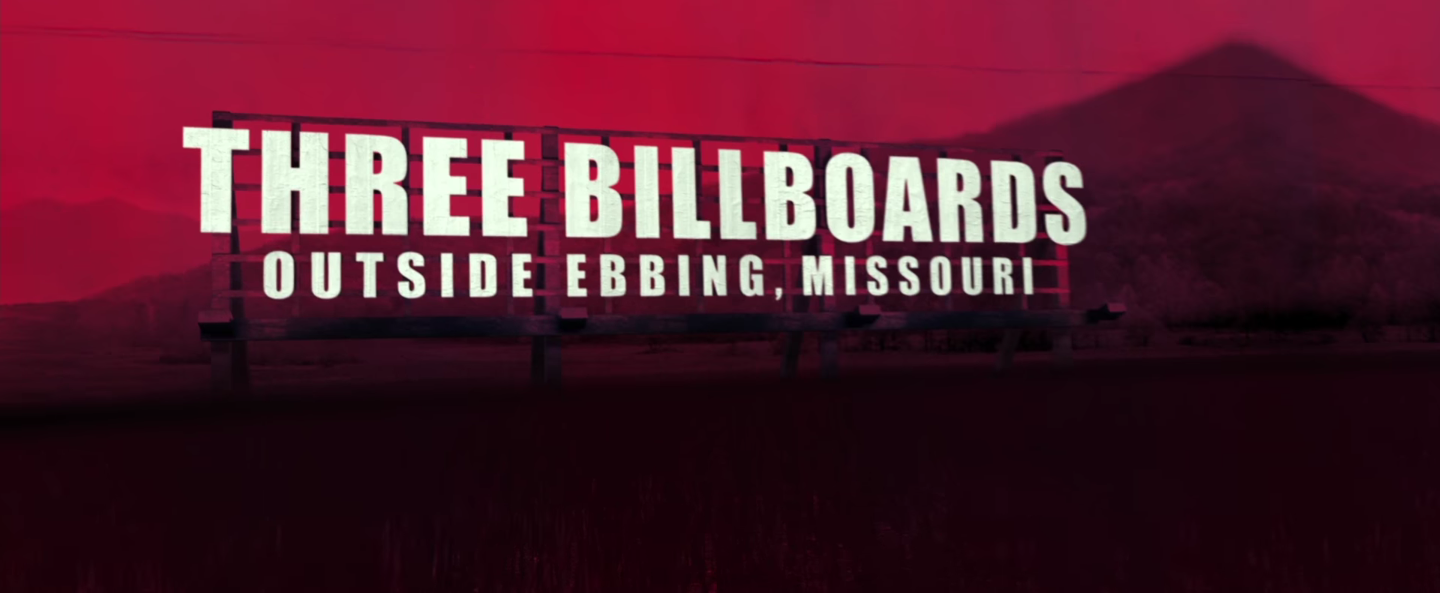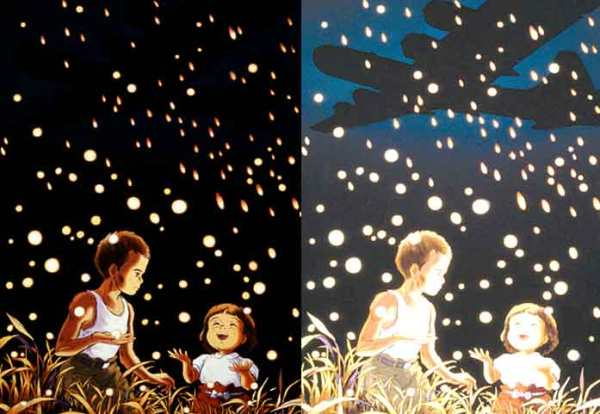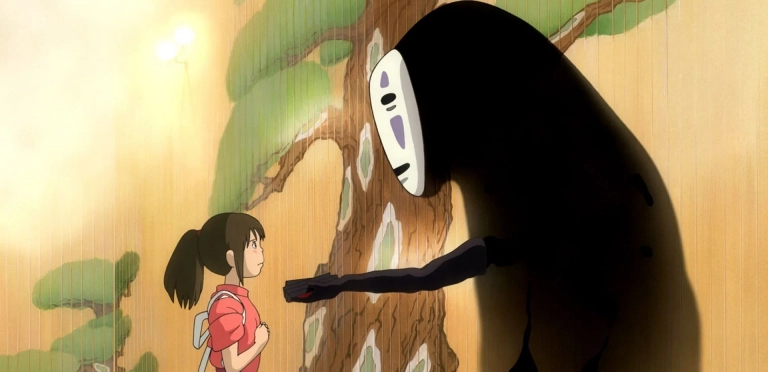Tackling a controversial and emotionally charged topic that continues to divide America, Three Billboards Outside Ebbing, Missouri made waves at the Golden Globes and has emerged as a strong contender for the upcoming Oscars.
With seven Academy Award nominations—including Best Picture, Best Actress, two Best Supporting Actor nods, Best Original Screenplay, Best Original Score, and Best Film Editing—this film is as powerful as it is provocative.
Note: The following contains plot details
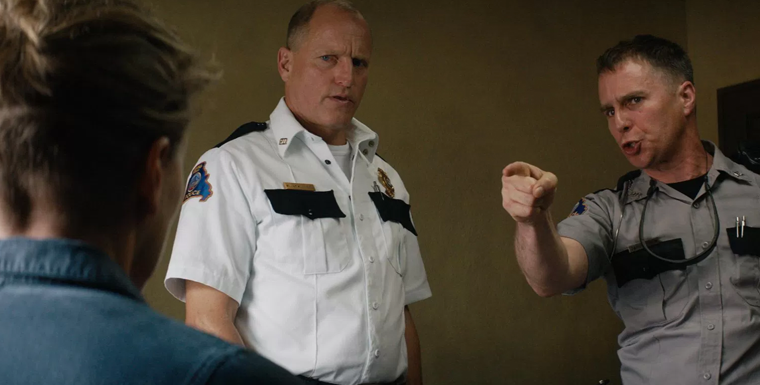
Raw, Unfiltered, and Unapologetic
Three Billboards Outside Ebbing, Missouri is not an easy film to watch. It deals with rape, murder, suicide, police negligence, brutality, and racism—issues that many would rather avoid. But the film confronts them head-on, in the most jarring, unflinching ways. It begins with Mildred, a grieving mother, renting three billboards emblazoned with stark black letters on a red background:
“Raped while dying”
“And still no arrests?”
“How come, Chief Willoughby?”
These billboards call out the local police for their inaction in the investigation of Mildred’s daughter’s murder, and they ignite a firestorm between Mildred and the Ebbing Police Department—especially Chief Willoughby.
A Trio of Deeply Flawed, Deeply Human Characters
The film centers around three key characters: Mildred (played by Frances McDormand), Chief Willoughby (Woody Harrelson), and Officer Dixon (Sam Rockwell). Each is caught in a web of grief, anger, and vengeance. And each, in their own way, is both victim and perpetrator in the cycle of hate and hurt.
Frances McDormand and Sam Rockwell both won Golden Globes for their performances, and all three actors received Oscar nominations. Their performances are raw, complex, and unforgettable—portraying characters who are broken, messy, and entirely human.
Atmosphere and Script to Match
The film’s soundtrack complements its somber tone, capturing the gritty essence of small-town crime drama in middle America. Woody Harrelson’s presence even evokes the vibe of True Detective, adding a haunting familiarity. But the real star of the show is Martin McDonagh’s screenplay—biting, sharp, layered, and brutally honest. His writing pushes the story beyond revenge and into something far deeper.
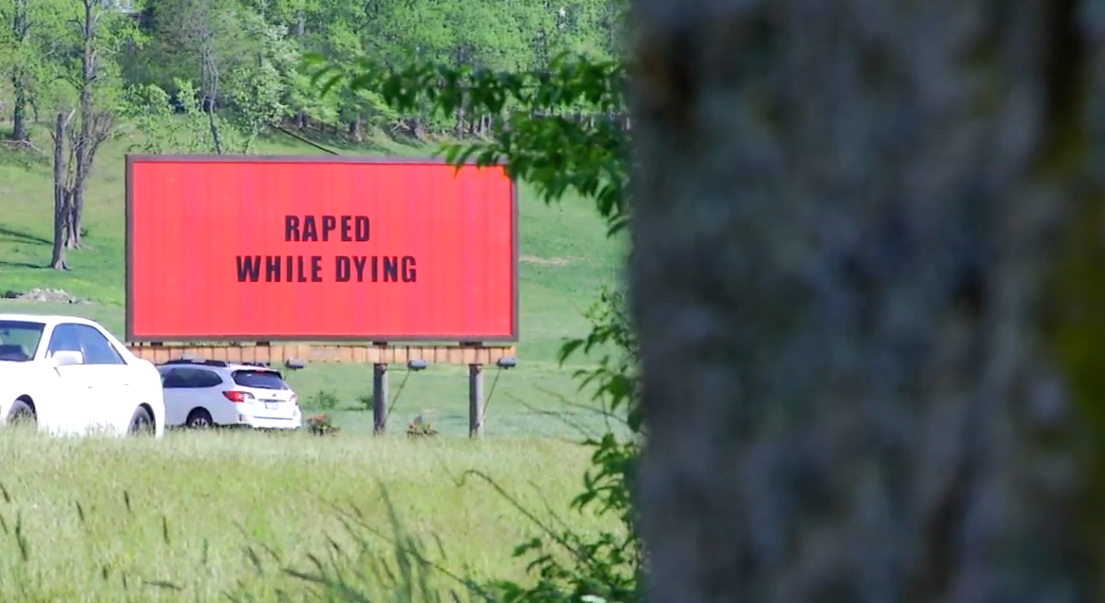
A Chain Reaction of Pain
The narrative unfolds as a relentless cascade of sorrow. Violence begets violence. Fire, blood, suicide notes, shattered careers, shattered lives. Unlike conventional stories, this one doesn’t offer neat resolutions. Instead, it plays out like a tragic spiral after the murder of Mildred’s daughter, exposing every flawed facet of the town of Ebbing.
McDonagh’s work is nothing short of masterful. With this film, he stands poised to claim Oscars for both Best Picture and Best Original Screenplay.
An Unexpected Ending
After all the explosive events, the film ends on a surprisingly quiet, ambiguous note. Two former enemies sit in a car together—perhaps still unsure if they want justice, or revenge, or peace. It’s not a triumphant ending, nor a tragic one. It’s uncertain, and that’s the point.
As viewers, we’re left to wonder: Can grief justify vengeance? Can pain ever find closure through violence? Mildred’s suffering is immense, and we sympathize with her rage. But the police—flawed and guilty in many ways—also pay dearly. Careers, limbs, lives are lost. By the film’s final scene, death has taken its toll, and the only path forward seems to be forgiveness.
“You sure about this?”
“About killing him? Not really. You?”
“Not really. I guess we’ll decide on the way.”
And You—What Would You Choose?
That final exchange says it all. After hate, after pain, comes a crossroads. What will you choose: hatred or forgiveness?

